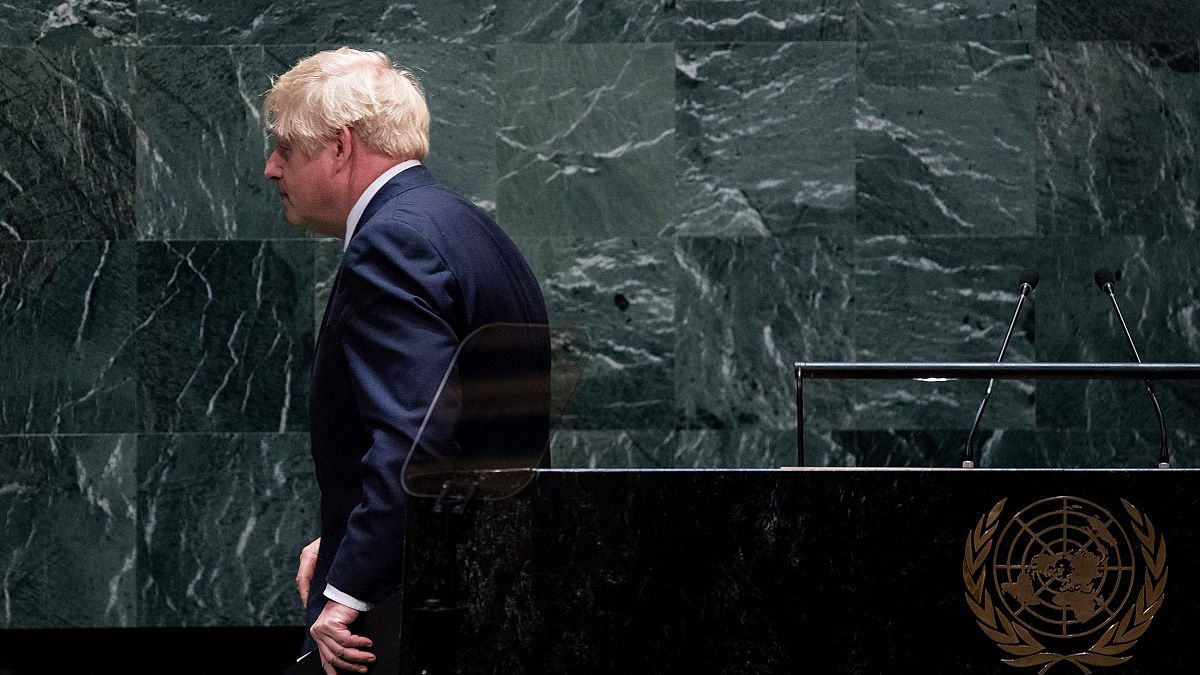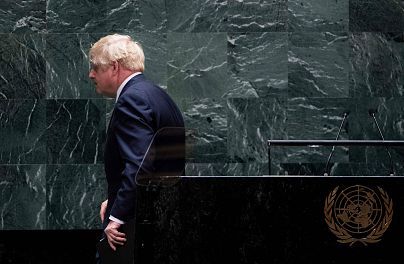"Holding the government to account and asking questions about what the government is doing is what Parliament is all about," said a former Conservative Party lawmaker.
LONDON — Despite the best efforts of Prime Minister Boris Johnson, the doors of the British Parliament were thrust open again Wednesday, inviting some of the most raucous scenes of this febrile Brexit crisis.
Johnson suspended Parliament earlier this month, but a crushing, historic decision by the Supreme Court overturned that Tuesday, with 11 justices ruling unanimously that he did it to silence his Brexit opponents.
The prime minister was forced to cut short a visit to the United Nations General Assembly in New York, flying back to London on a red-eye just before Parliament reopened.
Lawmakers who thought they would not be sitting again until Oct. 14 rushed back to the capital to retake their seats Wednesday morning.Once in the chamber, Attorney General Geoffrey Cox branded Parliament a "disgrace" for blocking the government's Brexit plans, as well as the early general election that Johnson says he wants.
His baritone voice rasping above the heckles of all sides, Cox said lawmakers were "too cowardly" and added that "the time is coming when even these turkeys won't be able to prevent Christmas."
However — aside from a humiliating symbolic blow for the prime minister — it's not entirely clear what impact the decision will have on Johnson, Brexit, or Britain's political turmoil.
"This extra-parliamentary time is going to be filled, there's no doubt about that," Dominic Grieve, a former Conservative Party lawmaker effectively fired by Johnson over Brexit, told NBC News.
"Holding the government to account and asking questions about what the government is doing is what Parliament is all about."
Johnson landed in London shortly before the parliamentary session started. If he makes a speech to the Commons it would be a landmark event following such an unprecedented court ruling against him.
In another political era, such a scathing judgement from the highest court in the land might have been expected to produce resignations and perhaps an implosion of the government itself.
The prime minister's usual opponents were joined in calls for Johnson's resignation by the Financial Times, a sober, even-handed newspaper that does not print such opinions lightly.
"Faced with such a damning judgment, any premier with a shred of respect for British democracy and the responsibilities of his office would resign," the paper said in an editorial.
The messages from those in Johnson's government, however, have not been ones of contrition.
Michael Gove, a senior member of Johnson's Cabinet, told Sky News that the government "respectfully disagreed" with the ruling.
The court supported the widely held belief among government opponents and independent experts that Johnson shut down the legislature purely to stop lawmakers scrutinizing his plans to leave the E.U.
He has promised to do this on Oct. 31, with or without an agreed deal with European leaders.
Lawmakers, including many from Johnson's own Conservative Party, have said they will do everything they can to stop what official forecasts say could be a damaging "no deal Brexit."
They have already passed a major bit of legislation on this front. In the dwindling days before the suspension kicked in, they pushed through a bill that would force Johnson to request a Brexit extension if he doesn't get a deal by Halloween.
Another way to use the extra time might be for the opposition to try to force an enfeebled government into an early general election. But right now there is no guarantee the opposition would win. And defeat would hand the Brexit initiative right back to Johnson, giving him the power he currently lacks to finish his plans.
"Our priority is to prevent a no-deal exit and when that has been achieved ... we will then be ready with a motion of no confidence," opposition Labour Party leader Jeremy Corbyn told the BBC, referring to the "vote of no confidence" that would be needed to depose the prime minister.
Nevertheless, there is plenty for lawmakers to do, according to Jack Simson Caird, a former constitutional law specialist in the House of Commons Library, which provides briefings to lawmakers.
"You need Parliament to keep its foot on the pedal and keep the pressure up at a time like this," said Caird, who is now a senior research fellow at the Bingham Centre for the Rule of Law, a research group in London. "The general point will be: Just ask the government what they are doing."

